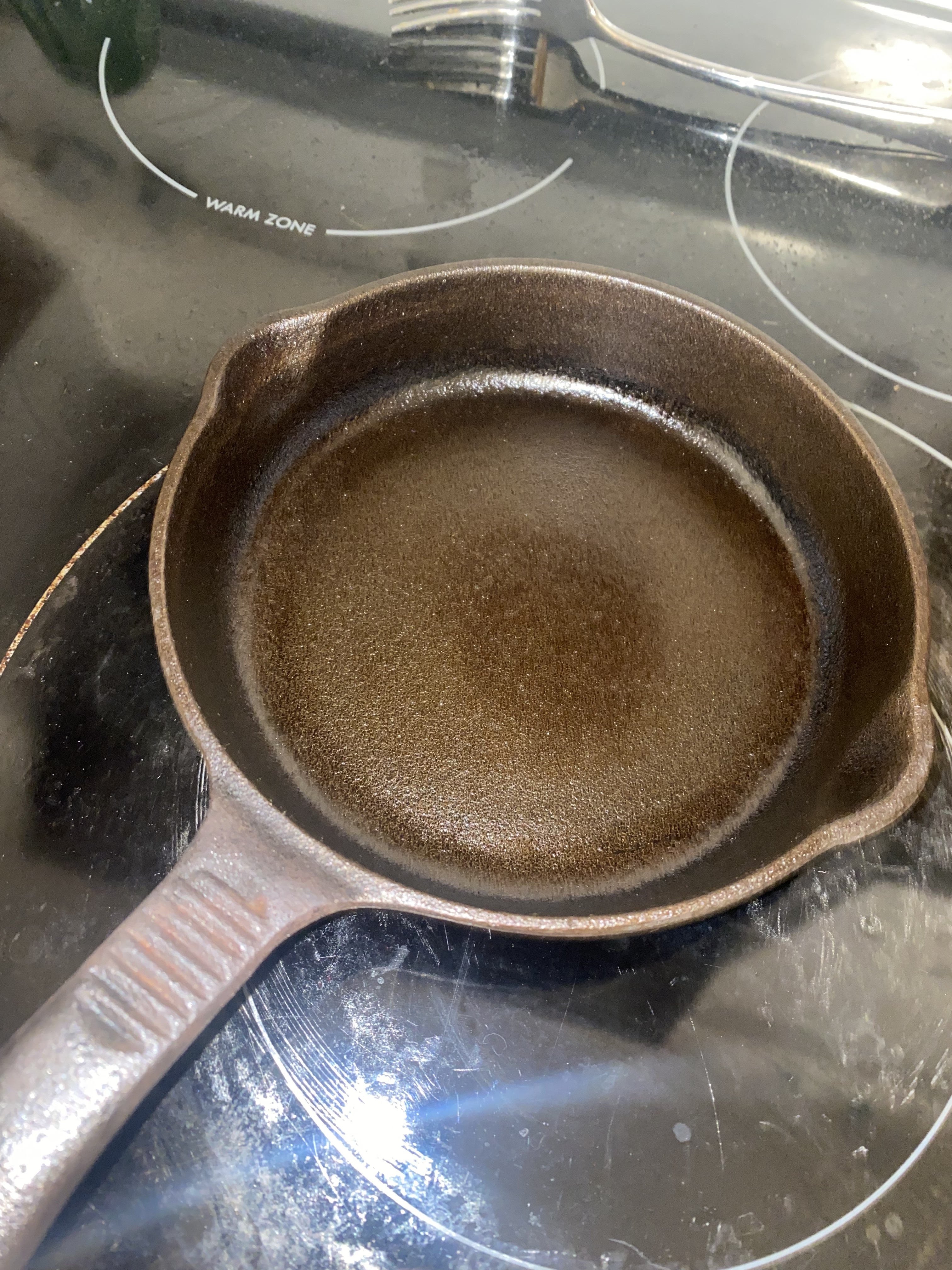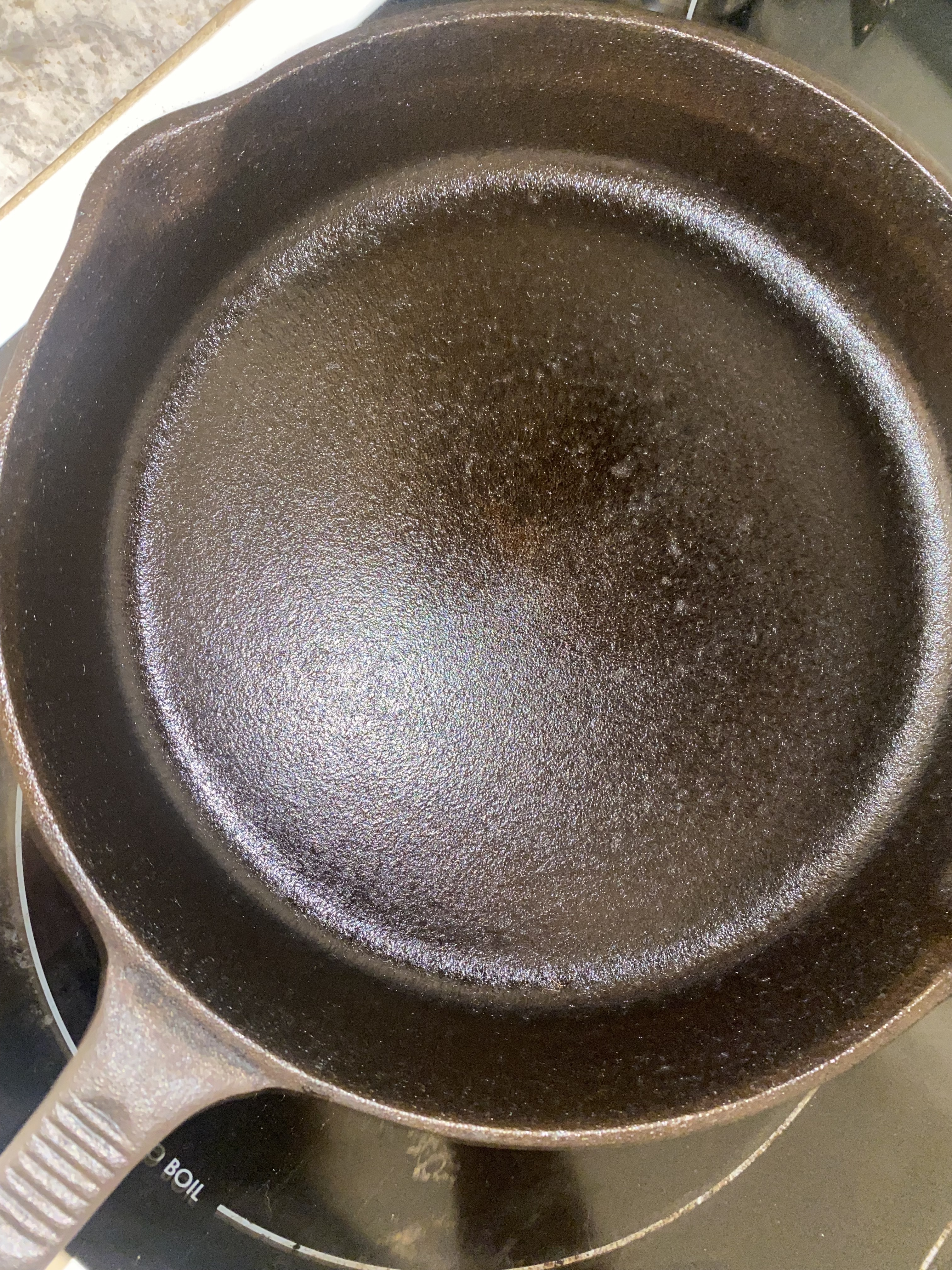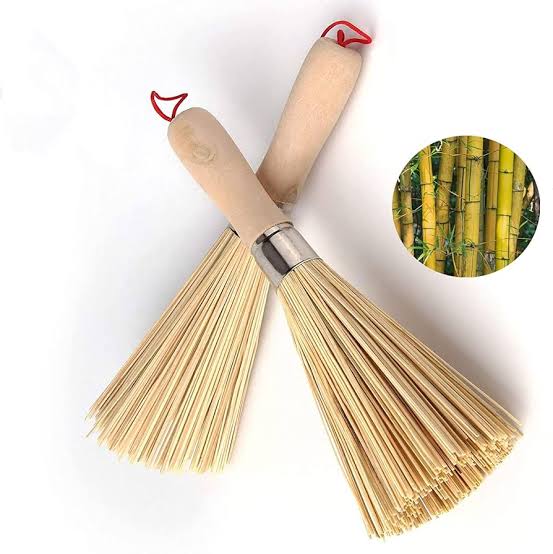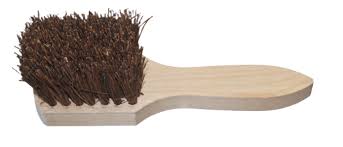Seasoning cast iron gets built up to be this big magical thing and it absolutely is not. You're heating oils on the iron surface until it polymerizes. All the people talking about having ancient seasoning going back to the iron age and saying it makes their food taste better are just repeating folk tales.
How to care for cast iron
1- if it rusts chuck a stainless steel brush in to your power drill and run the brush until it shines
2 - if it's dirty wash it with a little dish soap and warm water
3 - if the season sucks spray some pam on it and put it in the oven for 450 for an hour or two
4 - if you need to replace the season for any reason remove it with degreaser, clean the pan thoroughly, then repeat the pam thing.
The idea that soap ruins seasoning is from back in the day when soap had lye in it. The lye would rip the polymerized oils apart. Modern dish soaps mostly don't have lye or an equivalent degreaser and don't really effec the polymerized coating.





